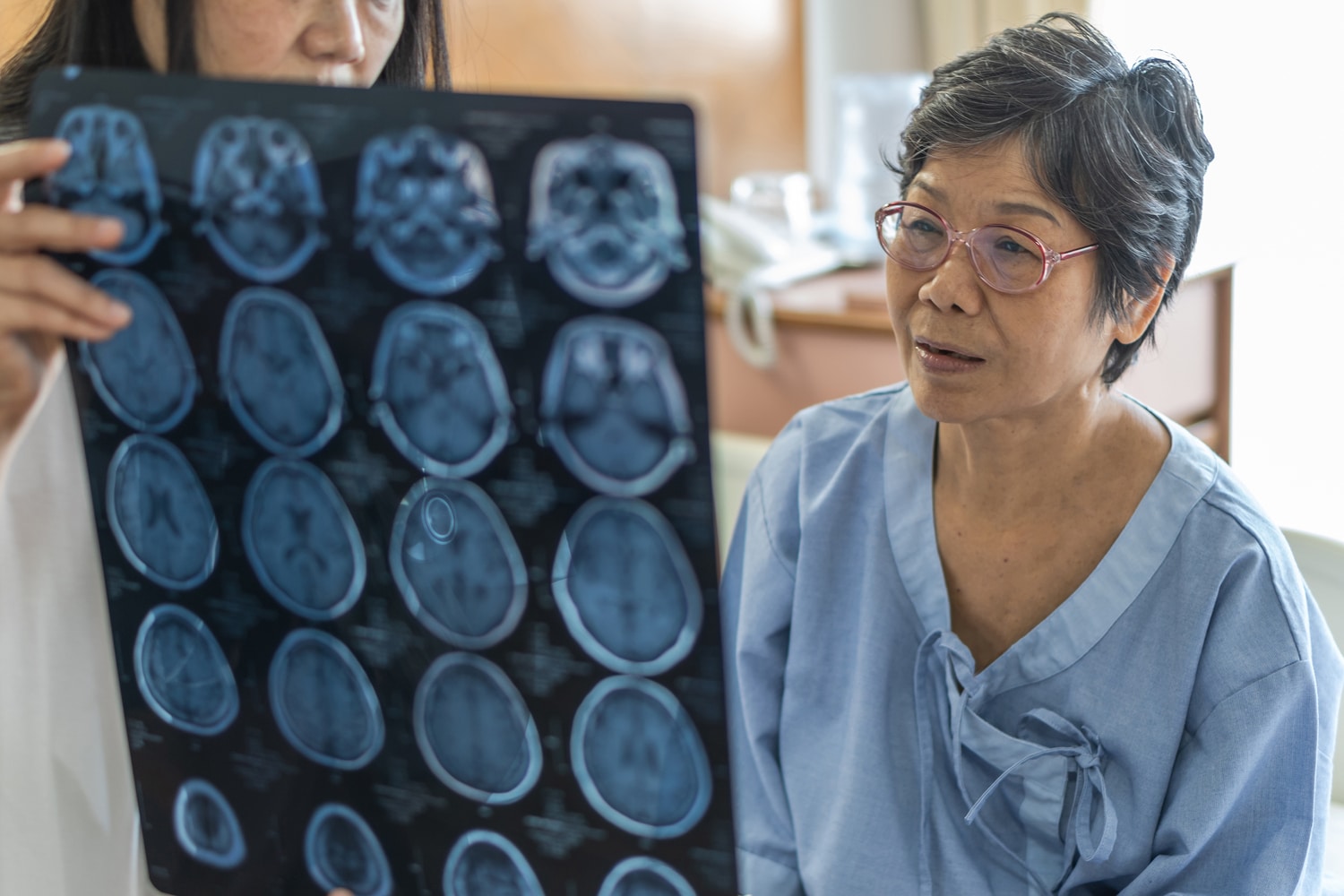If you or a loved one are recovering from a traumatic brain injury (TBI), you may wonder if your life will ever be the same. Thankfully, with a lot of hard work, many people’s symptoms fade over time. However, it’s not a quick process, and you need to understand typical timelines for a TBI recovery.
At Crosley Law, we’ve been helping people with brain injuries for decades. We know that no two TBI survivors face the same challenges or have the same path to recovery. In this article, we outline common stages in the head injury healing process.
Timeline of Symptoms and Effects of a Traumatic Brain Injury
TBIs are sometimes difficult to diagnose, partially because they develop and progress differently for every victim. The following timeline of symptoms is only a possible progression of the condition and does not represent every case. It is not a substitute for your doctors’ personalized advice and insight.
Immediately After the Crash
While your initial symptoms may range from a mild headache to a coma, you should always seek immediate medical care after a blow to the head or losing consciousness during a crash or fall. Even seemingly minor symptoms can be evidence of a profound TBI.
When the brain suffers trauma, it causes swelling and other physical responses. Even after the initial injury, bleeding, swelling, and chemicals in your body can continue to damage your delicate brain tissues and nerves.
Many people experience their most dramatic symptoms in the days and weeks immediately following their crash or traumatic event when their swelling is at its peak, and their injuries are acute.
At this stage, your doctors will focus on identifying and stabilizing your injury. In the most serious cases, this may require surgery and time in the hospital. Others will need rest and time to heal at home.
Up to Six Months After the Crash
At this point, most TBI survivors are medically stable, but still face a long road to recovery. You may struggle with mental slowness, memory loss, concentration problems, mood swings, and problems with muscle weakness. If your injury was more severe, you may spend time in a rehabilitation hospital, building up strength and relearning skills.
Therapists and doctors have noted that in the six months immediately following a TBI, people typically experience the most improvement. While your symptoms may plateau or level off from time to time, it’s important to take your rehabilitation seriously during this period.
Up to Two Years After the Crash
After six months, it is still possible to regain function and ability, but the process is slower. By this point, most victims are trying to teach their brains to compensate for the TBI. During this time, your brain is adapting to the damage and “rewiring” itself. This is incredibly difficult work that requires help from doctors, therapists, and psychologists.
Additionally, it’s not uncommon for people with TBIs to experience a spike in depression during this time. This can make it hard to find motivation or hope, but don’t give up. Instead, talk to your medical team about your mood and mental health – they may be able to help you manage your feelings.
Will My Traumatic Brain Injury Symptoms Improve After Two Years?
While earlier studies reported that the majority of victims were at maximum medical improvement by the second year, newer research shows that for some people, improvement is possible. However, it will require ongoing therapy and medical care – and you need to have realistic expectations. Many TBI survivors live with permanent limitations.
“There is no yesterday,” said Barb O., a client of Crosley Law who suffered a severe traumatic brain injury after being hit by a large truck. Like other victims of severe TBIs, Barb’s memory is impaired, and she has no recall of some past events. Doctors suspect that Barb will never return to her post-crash life.
When Should I Consult with a TBI Lawyer?
The sooner you consult with an experienced TBI lawyer, the better. First, early diagnosis of your brain injury can help you experience a fuller recovery. Sometimes, a lawyer can help you connect with the right specialists who can identify and tend to your head injury.
Second, insurance companies frequently deny injury claims involving TBIs. Because some brain injuries aren’t obvious on MRI and CT scans, the insurance adjuster may argue that your injury was mild or doesn’t exist. To combat these tactics, you’ll need an experienced Crosley Law attorney who understands the complexities of a TBI diagnosis.
“Insurance companies frequently deny injury claims involving TBIs. Because some brain injuries aren’t obvious on MRI and CT scans, the insurance adjuster may argue that your injury was mild or doesn’t exist. To combat these tactics, you’ll need an experienced Crosley Law attorney who understands the complexities of a TBI diagnosis.”
Finally, calculating TBI-related damages isn’t a simple process. You may face a lifetime of medical care, lost income, and impacted relationships. While the insurance company’s settlement offer may seem generous, it probably doesn’t fully consider your full range of damages and losses. A lawyer can help you recover a fair settlement that acknowledges the real value of your injury claim.
Crosley Law Stands Up For Victims of Traumatic Brain Injuries
At Crosley Law, we urge all of our car accident clients to seek medical attention as soon as possible. If you or a loved one have been diagnosed with a traumatic brain injury or believe it possible that a crash caused a TBI, work with the experienced TBI attorneys at Crosley Law to ensure that you get the full compensation you deserve.
Contact our attorneys today by completing our simple, easy online contact form or calling us at 210-LAW-3000 | 210-529-3000.
References
Novack, T., Bushnik, T. (2010, March 23). Understanding TBI: The recovery process. Brainline. Retrieved from https://www.brainline.org/article/understanding-tbi-recovery-process
Rapaport, L. (2019, June 3). Even mild brain injuries tied to lasting functional deficits. Reuters – Health News. Retrieved from https://www.reuters.com/article/us-health-brain-injury/even-mild-brain-injuries-tied-to-lasting-functional-deficits-idUSKCN1T42FU
Traumatic brain injury: hope through research. (September, 2015). National Institute of Neurological Disorders and Stroke. Retrieved from https://www.ninds.nih.gov/Disorders/patient-caregiver-education/hope-through-research/traumatic-brain-injury-hope-through
The content provided here is for informational purposes only and should not be construed as legal advice on any subject.









